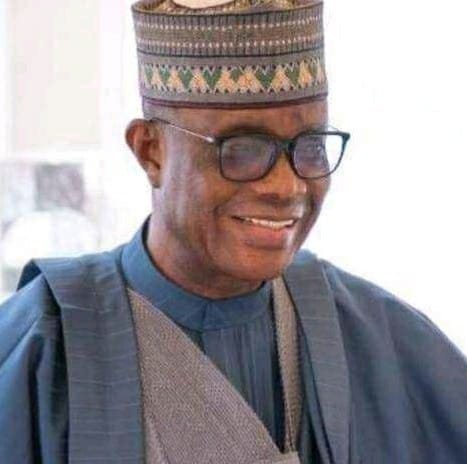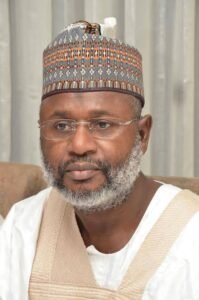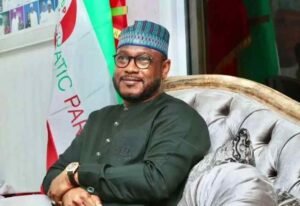This article provides a comprehensive look at the leadership of Zamfara State, Nigeria, from its creation in 1996 to the present day.
It details the governors who have served the state, both during the military era and throughout the democratic periods. If you’re interested in learning about:
- The first military administrator and his role in establishing the state’s structure.
- The first civilian governor and his implementation of Sharia law.
- The current governor and his background in banking and politics.
- A complete list of past governors with their tenures and political parties.
Then, this guide is a valuable resource for you.
Complete List Of Past And Current Governors Of Zamfara State
Name | Began Tenure | Ended Tenure | Party |
|---|---|---|---|
Jibril Yakubu | 7 October 1996 | 29 May 1999 | Military |
Ahmad Sani Yarima | 29 May 1999 | 29 May 2007 | ANPP |
Mahmud Shinkafi | 29 May 2007 | 29 May 2011 | ANPP |
Abdul'aziz Abubakar Yari | 29 May 2011 | 29 May 2019 | ANPP |
Bello Matawalle | 29 May 2019 | 29 May 2023 | APC |
Dauda Lawal | 29 May 2023 | Incumbent | PDP |
Who Was The First Military Governor Of Zamfara State?

Colonel Jibril Bala Yakubu was the first Administrator of Zamfara State when it was established in October 1996. He was In office until the return to democratic governance in May 1999, during the military regimes of Generals Sani Abacha and Abdulsalami Abubakar.
SEE ALSO: List Of Governors Of Yobe State (1991-Present)
During his tenure, Yakubu implemented significant administrative changes, including the creation of five Emirates and eleven new District Councils within the state.
Following the handover to civilian governance in May 1999, Yakubu retired from the army as required by military regulations.
However, his post-administration life took a dramatic turn when he was arrested and charged with conspiracy to assassinate Alex Ibru, the publisher of The Guardian newspaper. The charge alleged that Yakubu, along with four others, conspired in 1996 to carry out the assassination.
Also, as the Commanding Officer of the 29 Battalion, he was accused of supplying arms to killer squads that targeted opponents of General Sani Abacha. Despite facing legal challenges and imprisonment, Yakubu maintained his innocence throughout the ordeal.
In April 2009, the Arewa Consultative Forum, a Northern lobby group, called for his release based on the spirit of national reconciliation advocated by the Oputa panel.
After enduring 12 years of imprisonment, trials, and retrials, Yakubu and his co-defendants were eventually acquitted of most charges on 21 December 2010.
His co-defendants included former Chief Security Officer Hamza al-Mustapha, former Lagos State Police Commissioner James Danbaba, and former head of the Aso Rock Anti-Riot Police Rabo Lawal.
Who Was The First Civilian Governor Of Zamfara State?

Ahmad Sani Yerima was the first civilian governor of Zamfara State, serving from May 1999 to May 2007. He was born on July 22, 1960, in Anka town, Zamfara State.
Yerima had already served in various roles, including teaching at Borno College of Basic Studies and working in the Sokoto state civil service as an economic planning officer and later as the Director of Budget in the Ministry of Finance.
During his tenure as governor, Yerima made history by being the first Nigerian state governor to implement Sharia law in Zamfara State, which came into effect on January 27, 2000.
This move was met with enthusiasm by the state’s Muslim majority but raised concerns among non-Muslims due to its implications for their rights and freedoms. Despite the controversy, Yerima emphasized his commitment to Nigeria as a multi-faith society.
After serving two terms as governor, Yerima moved into federal politics and was elected as the Senator for Zamfara West constituency in the Nigerian Senate.
He had different positions in the Senate and was involved in legislative committees addressing issues such as federal character, anti-corruption, and agriculture. Yerima’s political career was not without controversy.
He gained international attention for his marriage to a 13-year-old girl from Egypt, which sparked debates about child rights and Islamic law. Despite facing criticism and investigations, Yerima maintained that his actions were following Islamic teachings.
SEE ALSO: List Of Governors Of Taraba State (1991-Present)
Who Is The Current Governor Of Zamfara State?

Dauda Lawal is the current governor of Zamfara State. He became governor on May 29, 2023. Before entering politics, Lawal had a successful career in banking.
He worked for First Bank of Nigeria Plc, where he had various important positions. Lawal was born on September 2, 1965, in Gusau, Zamfara State, coming from a family known for their involvement in the textile industry.
Lawal went to school in Katsina State for his primary education and then attended Government Secondary School, Kankia, for his secondary education. Later, he graduated from Ahmadu Bello University with a Bachelor’s degree in Political Science.
He also earned a Master’s degree in Political Science/International Relations from the same university and a Ph.D. in Business Administration from Usmanu Danfodiyo University, Sokoto.
In his banking career, Lawal achieved many milestones. He rose through the ranks at First Bank of Nigeria Plc, eventually becoming the Executive Director, of Public Sector North.
He was also involved in Islamic banking reforms during Sanusi Lamido Sanusi’s tenure as Central Bank Governor. Lawal moved into politics in the lead-up to the 2019 general elections.
He contested for the governorship ticket of Zamfara State under the All Progressives Congress (APC) but was unsuccessful.
Then he joined the People’s Democratic Party (PDP) and ran again for governorship. In the PDP primary election in 2022, he emerged as the party’s flag bearer.
In the 2023 Nigerian gubernatorial elections, Lawal defeated the incumbent governor, Bello Matawalle of the APC, to become the governor-elect of Zamfara State. His victory was seen as a significant upset, as the PDP had not won a governorship election in Zamfara since 1999.
Reference Sources

